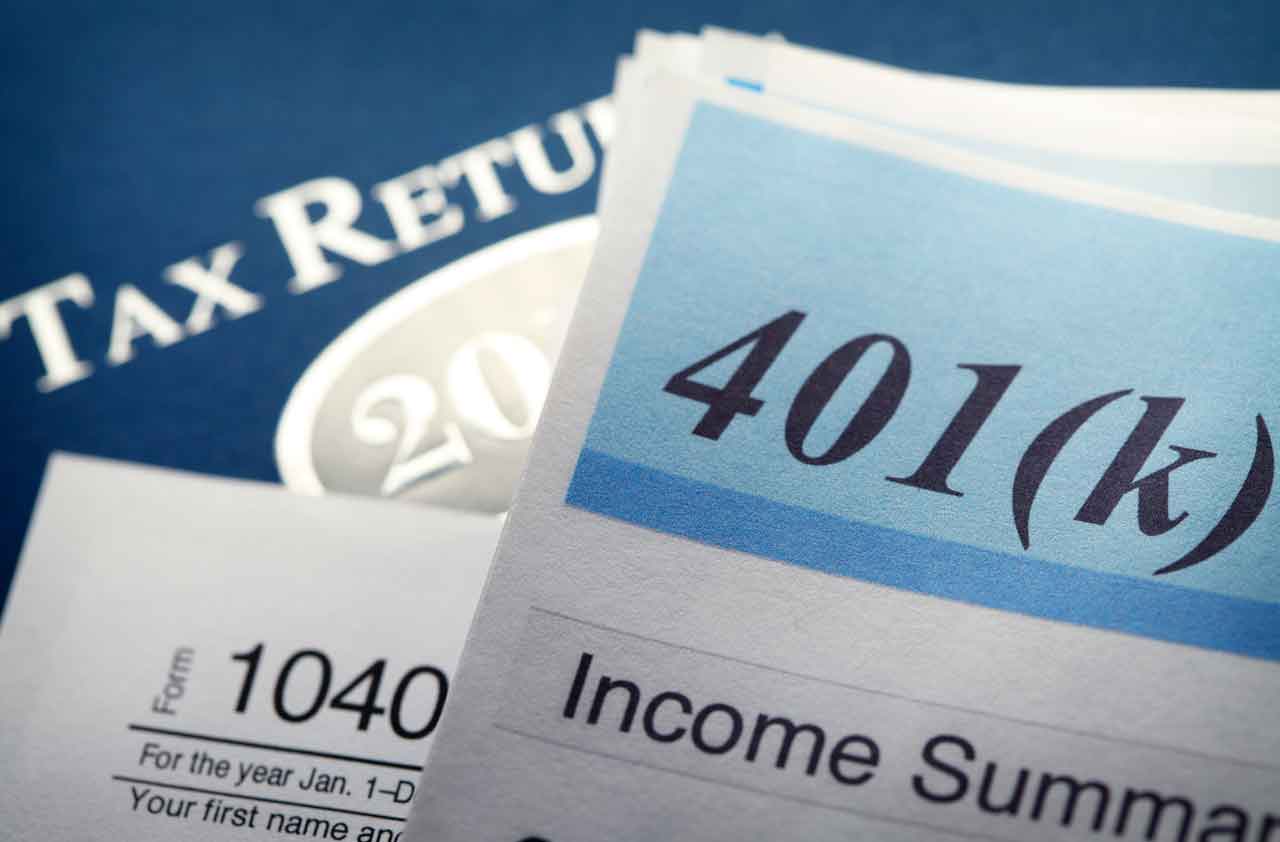Stable Funds for Volatile Times
Stable-value funds are a lot less risky than stocks, but be a little skeptical in this market of any promise of 100% stability.

Profit and prosper with the best of Kiplinger's advice on investing, taxes, retirement, personal finance and much more. Delivered daily. Enter your email in the box and click Sign Me Up.
You are now subscribed
Your newsletter sign-up was successful
Want to add more newsletters?

Delivered daily
Kiplinger Today
Profit and prosper with the best of Kiplinger's advice on investing, taxes, retirement, personal finance and much more delivered daily. Smart money moves start here.

Sent five days a week
Kiplinger A Step Ahead
Get practical help to make better financial decisions in your everyday life, from spending to savings on top deals.

Delivered daily
Kiplinger Closing Bell
Get today's biggest financial and investing headlines delivered to your inbox every day the U.S. stock market is open.

Sent twice a week
Kiplinger Adviser Intel
Financial pros across the country share best practices and fresh tactics to preserve and grow your wealth.

Delivered weekly
Kiplinger Tax Tips
Trim your federal and state tax bills with practical tax-planning and tax-cutting strategies.

Sent twice a week
Kiplinger Retirement Tips
Your twice-a-week guide to planning and enjoying a financially secure and richly rewarding retirement

Sent bimonthly.
Kiplinger Adviser Angle
Insights for advisers, wealth managers and other financial professionals.

Sent twice a week
Kiplinger Investing Weekly
Your twice-a-week roundup of promising stocks, funds, companies and industries you should consider, ones you should avoid, and why.

Sent weekly for six weeks
Kiplinger Invest for Retirement
Your step-by-step six-part series on how to invest for retirement, from devising a successful strategy to exactly which investments to choose.
In my 401(k) plan, I have money in Promark Income fund, a stable-value fund. How risky is this type of fund? Also, is this a good substitute for some of the bond portion in a diversified portfolio?
Stable-value funds sure are a lot less risky than being in the stock market. And so far, they've done a great job of maintaining their stability. David Babbel, coauthor of a study on these funds, says none has ever experienced a decline in value.
Promark Income fund, run by General Motors Asset Management, returned 5.1% over the past year through September 30 and an annualized 5.6% since its inception on December 31, 1998. A spokesman says the fund invests in a full spectrum of fixed-income instruments, including money-market funds and corporate bonds. As with all stable-value funds, principal is guaranteed by a "wrapper" from an insurance company. In this specific case, three double-A-rated insurers guarantee the fund's value.
From just $107.88 $24.99 for Kiplinger Personal Finance
Become a smarter, better informed investor. Subscribe from just $107.88 $24.99, plus get up to 4 Special Issues

Sign up for Kiplinger’s Free Newsletters
Profit and prosper with the best of expert advice on investing, taxes, retirement, personal finance and more - straight to your e-mail.
Profit and prosper with the best of expert advice - straight to your e-mail.
Babbel says three safeguards "act as a pretty good safety net to keep stable-value stable": the funds' own investment guidelines, the accounting standards the funds use, and the insurance company's credit-quality requirements.
Babbel's study, which examined these funds from their inception in 1989 through 2007, found that they typically outperformed money-market funds and intermediate-term government-bond funds while delivering a guaranteed quarterly return. So you could use Promark Income for a portion of your bond investments. Keep in mind, though, that with global financial markets in turmoil, any promise of 100% stability has to be taken with at least a tiny bit of skepticism.
Profit and prosper with the best of Kiplinger's advice on investing, taxes, retirement, personal finance and much more. Delivered daily. Enter your email in the box and click Sign Me Up.

As the "Ask Kim" columnist for Kiplinger's Personal Finance, Lankford receives hundreds of personal finance questions from readers every month. She is the author of Rescue Your Financial Life (McGraw-Hill, 2003), The Insurance Maze: How You Can Save Money on Insurance -- and Still Get the Coverage You Need (Kaplan, 2006), Kiplinger's Ask Kim for Money Smart Solutions (Kaplan, 2007) and The Kiplinger/BBB Personal Finance Guide for Military Families. She is frequently featured as a financial expert on television and radio, including NBC's Today Show, CNN, CNBC and National Public Radio.
-
 Betting on Super Bowl 2026? New IRS Tax Changes Could Cost You
Betting on Super Bowl 2026? New IRS Tax Changes Could Cost YouTaxable Income When Super Bowl LX hype fades, some fans may be surprised to learn that sports betting tax rules have shifted.
-
 How Much It Costs to Host a Super Bowl Party in 2026
How Much It Costs to Host a Super Bowl Party in 2026Hosting a Super Bowl party in 2026 could cost you. Here's a breakdown of food, drink and entertainment costs — plus ways to save.
-
 3 Reasons to Use a 5-Year CD As You Approach Retirement
3 Reasons to Use a 5-Year CD As You Approach RetirementA five-year CD can help you reach other milestones as you approach retirement.
-
 It’s Not Too Late to Boost Retirement Savings for 2018
It’s Not Too Late to Boost Retirement Savings for 2018retirement Some retirement accounts will accept contributions for 2018 up until the April tax deadline.
-
 Making the Most of a Health Savings Account Once You Turn Age 65
Making the Most of a Health Savings Account Once You Turn Age 65Making Your Money Last You’ll face a stiff penalty and taxes if you tap your health savings account for non-medical expenses before the age of 65. After that, the rules change.
-
 Using a 529 Plan for High School
Using a 529 Plan for High School529 Plans You’re now able to withdraw up to $10,000 tax-free from a 529 plan each year for K-12 tuition.
-
 Reporting Charitable IRA Distributions on Tax Returns Can Be Confusing
Reporting Charitable IRA Distributions on Tax Returns Can Be ConfusingIRAs Taxpayers need to be careful when reporting charitable gifts from their IRA on their tax returns, or they may end up overpaying Uncle Sam.
-
 Ex-Workers Get More Time to Repay 401(k) Loans
Ex-Workers Get More Time to Repay 401(k) Loans401(k)s If you leave your job while you have an outstanding 401(k) loan, Uncle Sam now gives you extra time to repay it -- thanks to the new tax law.
-
 The 11 Most Valuable Personal-Finance Lessons of 2018
The 11 Most Valuable Personal-Finance Lessons of 2018Financial Planning How to reduce taxes and medical bills, help the next generation save for retirement and protect against identity theft were some of the issues on readers’ minds in 2018.
-
 The Rules for Making a Tax-Free Donation from an IRA
The Rules for Making a Tax-Free Donation from an IRAIRAs Making tax-free gifts to charity from an IRA is gaining in popularity among older investors, thanks to changes under the new tax law. Here’s what you need to know to make a qualified charitable distribution.
-
 New Rules on Capital Gains
New Rules on Capital Gainsinvesting Rates didn’t change, but they’re pegged to your income instead of your tax bracket.